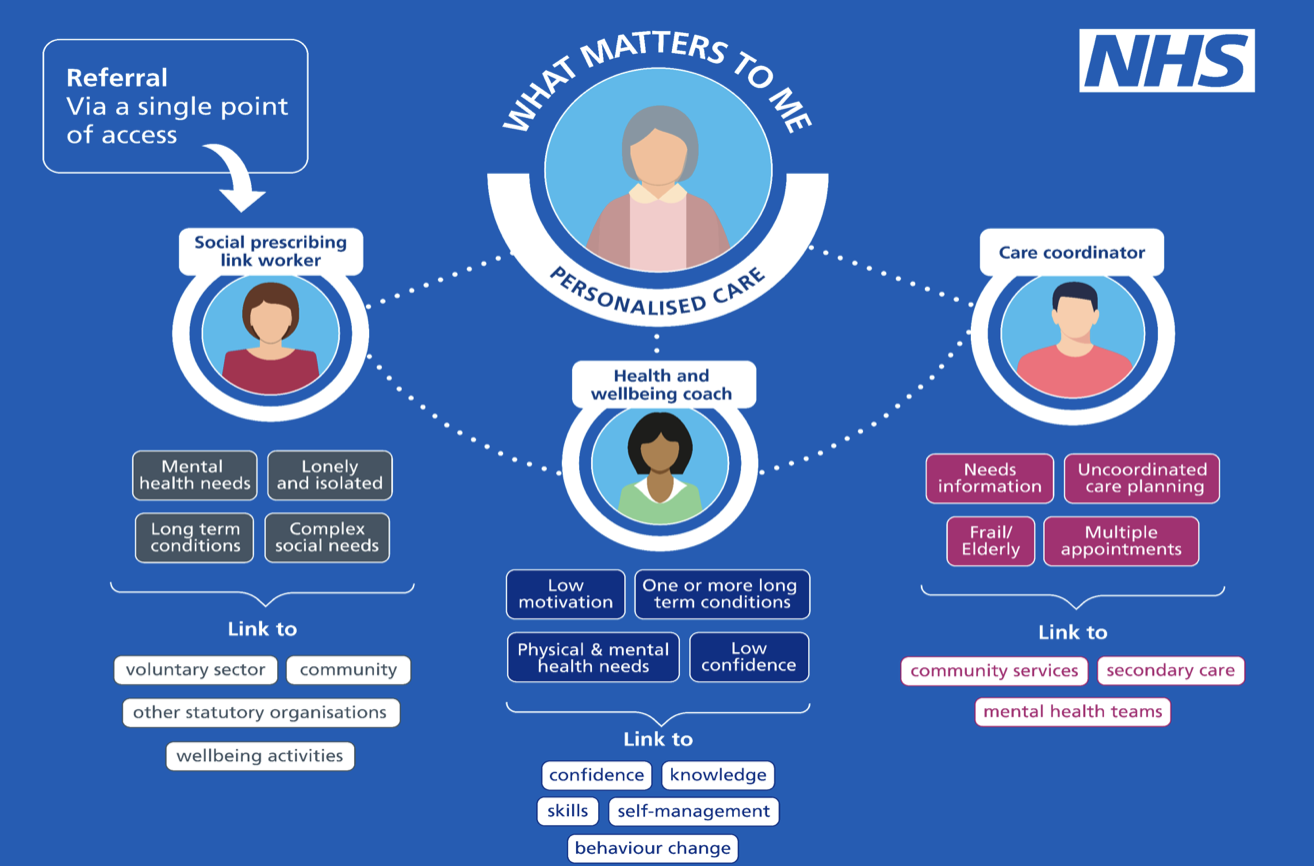Are you making the most out of your ARRS roles?

The Additional Roles Reimbursement Scheme (ARRS) was introduced in England in 2019 as a key part of the government’s manifesto commitment to improve access to general practice. The new ARRS roles fit together, to create a coherent and effective, person-centred approach. The roles can be deployed to work collaboratively across the health and care system.
At the Personalised Care Training Academy, our training courses focus on the three Personalised Care roles which include Social Prescribing Link Workers, Health Coaches and Care Coordinators.
These roles are integral to delivering the NHS Long Term plan ambition for personalised care to reach 2.5 million people by 2023/24 with the aim of then doubling that again within a decade, in addition to shifting care to a more holistic biopsychosocial model.
So what is the role of Social Prescribing Link Workers (SPLW), Care Coordinators and Health Coaches?
Social prescribing link workers (SPLW’s) address the wider determinants of health, identifying ways of meeting personal well-being goals by giving people time, focusing on ‘what matters to you?’. SPLW’s work collaboratively across the health and care system, targeting populations with greatest need and risk of health inequalities. They collaborate with partners to identify gaps in provision and support community offers to be accessible and sustainable. SPLW’s will work with patients to co-produce a simple personalised care and support plan
Care coordinators help to co-ordinate and navigate care across the health and care system, helping people make the right connections, with the right teams at the right time. They can support people to become more active in their own health and care and are skilled in assessing people’s changing needs. Care co-ordinators are effective in bringing together multidisciplinary teams to support people’s complex health and care needs.
Health and wellbeing coaches support people to increase their ability to self-manage, motivation levels and commitment to change their lifestyle. They are experts in behaviour change and their supportive and non-judgemental approach helps their patients develop the knowledge, skills and confidence to become advocates for their own care so that they can achieve their health and well-being goals. They work with people with physical and/or mental health conditions and those at risk of developing them. Health and wellbeing coaches can be an effective intervention for people experiencing a range of long term conditions, including respiratory, cardiovascular (including type 2 diabetes and hypertension), and stress/low mood. They can also support people with weight management, diet and increasing activity levels.
The ARRS roles can help through targeted work with specific groups identified through proactive approaches (example pathway below), supporting patients based on what matters to them and helping to address their holistic needs through advice, guidance, and connection to wider support services.


